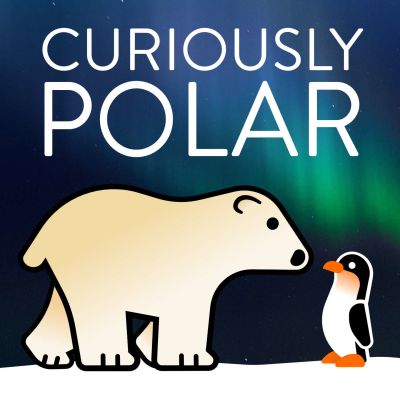The Arctic and the Antarctic are privileged locations for observers interested in understanding how our world is shaped by the forces of nature and the workings of history. These areas have inspired countless humans to undertake epic expeditions of discovery and have witnessed both great triumphs and miserable defeats. As a planetary litmus paper it is at the poles we can detect the effects of natural oscillations and human activities on the global ecosystems.
https://curiouslypolar.com/
145 Polar Newsreel (Millions of Nests ????????)
Watch this on video | Buy us a coffee: Chris / Henry / Mario
POLAR NEWSREEL: One of Svalbard's two internet cables is still broken from an unknown cause since January 7 and is a reminder of the vulnerability of digital infrastructure critical for research and the public in the North. | New research found that narwhals quickly react to anthropogenic noises by modifying their behavior, going silent and swimming close to shore. An increase of this type of disturbance can quickly lead to disruption of feeding and social interactions and negatively affect populations. | Eight years of sound recordings in the Bering Strait show that orcas move further north as the Arctic warms up and quickly occupy new territory. A similar pattern has been observed in the European Arctic. The novel presence of large numbers of top predators in the Arctic ecosystem can trow them out of balance. | Underwater footage shows 60 million icefish nests in Antarctica’s southern Weddell Sea representing the largest concentration of fish nests ever recorded in an area that was thought to be a desert. This find indicates that icefish are the major player in the Weddell Sea ecosystem and a major resource for top predators like seals. | Antarctic Pole expeditions struggle to finish while others have completed their journeys. There are still "firsts" to be conquered when considering the challenges of operating in Antarctica. | Two new runways in Antarctica can mean increased safety and better logistics for research station but also an increase in pollution and biosecurity threats by multipling visits and opening to airborne tourism.
This is an episode of the Curiously Polar podcast
with Chris Marquardt https://chrismarquardt.com/ Henry Páll Wulff: https://henrypall.com/ Mario Acquarone https://www.buymeacoffee.com/polarmario
Listen to all podcast episodes at https://curiouslypolar.com
All video episodes at https://tfttf.com/curiouslypolarvideo
Find us here: Web: https://curiouslypolar.com Twitter: https://twitter.com/curiouslypolar Instagram: https://instagram.com/curiouslypolar
